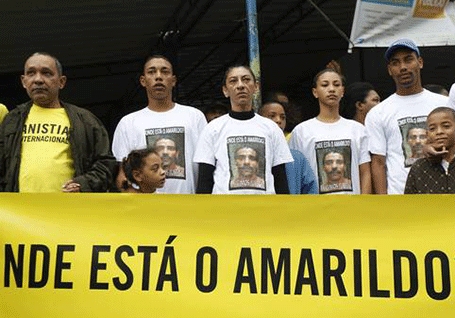A group of ten Rio de Janeiro police officers have been charged with torturing and killing a favela resident, in a case that highlights ongoing concerns over the city’s flagship slum pacification program.
Amarildo de Souza, a bricklayer from Rio’s biggest slum town Rocinha, disappeared on July 14 when he was taken by four members of a Police Pacification Unit (UPP) doing a round-up of potential drug traffickers, reported The Guardian.
Souza, an epileptic, died during an interrogation session during which he was tortured, reported the BBC.
He was given electric shocks and suffocated with plastic bags, along with three other residents of the same community, reported Diario do Nordeste.
The ten officers charged are all part of Rocinha’s UPP, and include the unit’s commander, Edson dos Santos.
Prosecutors are examining the police report and are expected to ask a judge for the arrest of the accused.
InSight Crime Analysis
Rocinha’s UPP was inaugurated last September, the biggest unit yet in the government’s scheme to “pacify” the city’s most violent slums one by one by taking over neighborhoods long controlled by drug traffickers and gangs. First, security forces move in, carrying out mass arrests and establishing control. Then a UPP trained in community policing is set up, intended to provide ongoing security and a permanent state presence. A total of 34 UPPs have been installed since November 2008 and the government plans to have 40 in place by 2014.
The first major study into the pacification program found it had significantly reduced violence in the favelas involved. However, serious concerns remain over several aspects of the program, not least the role of the police. As Souza’s case illustrates, the Rio de Janeiro police are far from harbingers of peace and community spirit. The city’s security forces have a long history of corruption and serious brutality, with on-duty police officers killing 7,611 people while between 2003 and 2009 according to official statistics cited by US NGO Human Rights Watch, and a history of misreporting such killings.
This is not the first time Rocinha’s pacification has run into trouble. Its military occupying unit was accused of taking bribes from drug traffickers in 2012, and there have been reports of ongoing violence.

